In celebration of National Mining Week 2024, CivMin highlights Mining Research and Community. We chatted with two graduate students Lauren Twible and Yunyun Yan to learn more about their exciting research aimed at improving mining practices and making the industry more sustainable.
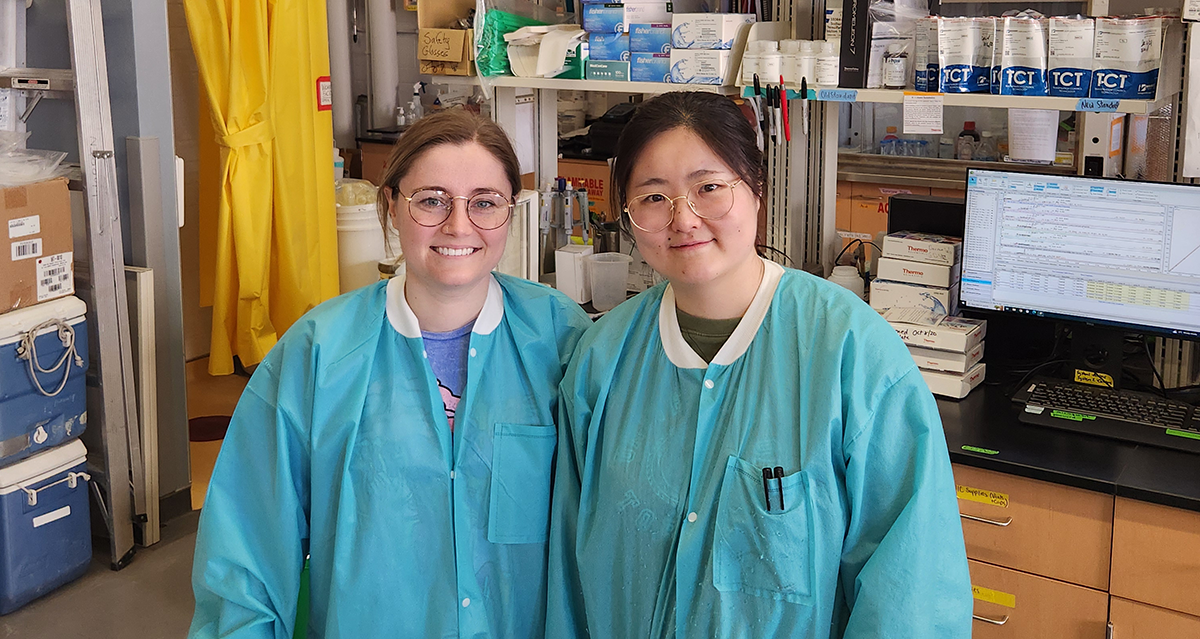
Lauren Twible, a PhD candidate in Prof. Lesley Warren’s lab investigates the role of sulphur and sulphur-oxidizing bacteria in base metal mining to mitigate environmental impacts amid rising demand for renewable energy infrastructure.
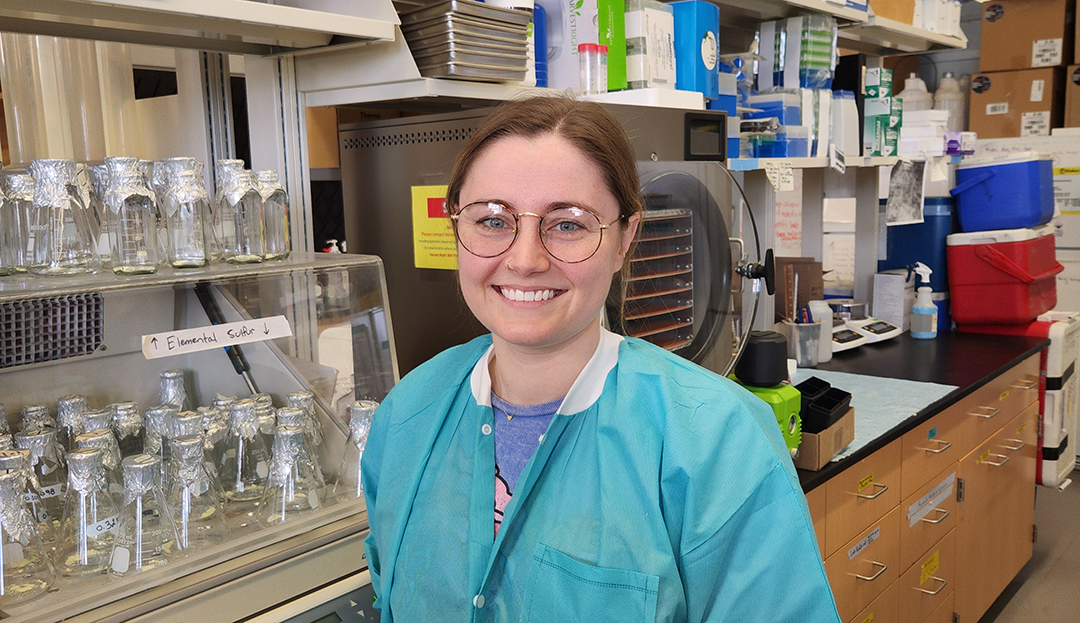
Could you please introduce yourself and tell me about the research you are currently involved in?
My name is Lauren Twible, and I’m a PhD candidate in Prof. Lesley Warren’s lab working on the Mining Wastewater Solutions (MWS) Project. My research focuses on understanding the role and impact of sulphur and sulphur-oxidizing bacteria in base metal mining aimed at minimizing the environmental impacts of mining. Increasing demand for base metals to support renewable energy infrastructure has resulted in a global increase in mining wastes and mining-impacted waters. As these mining waste landscapes continue to grow, there is an increased demand to understand the biological and geochemical conditions governing these environments.
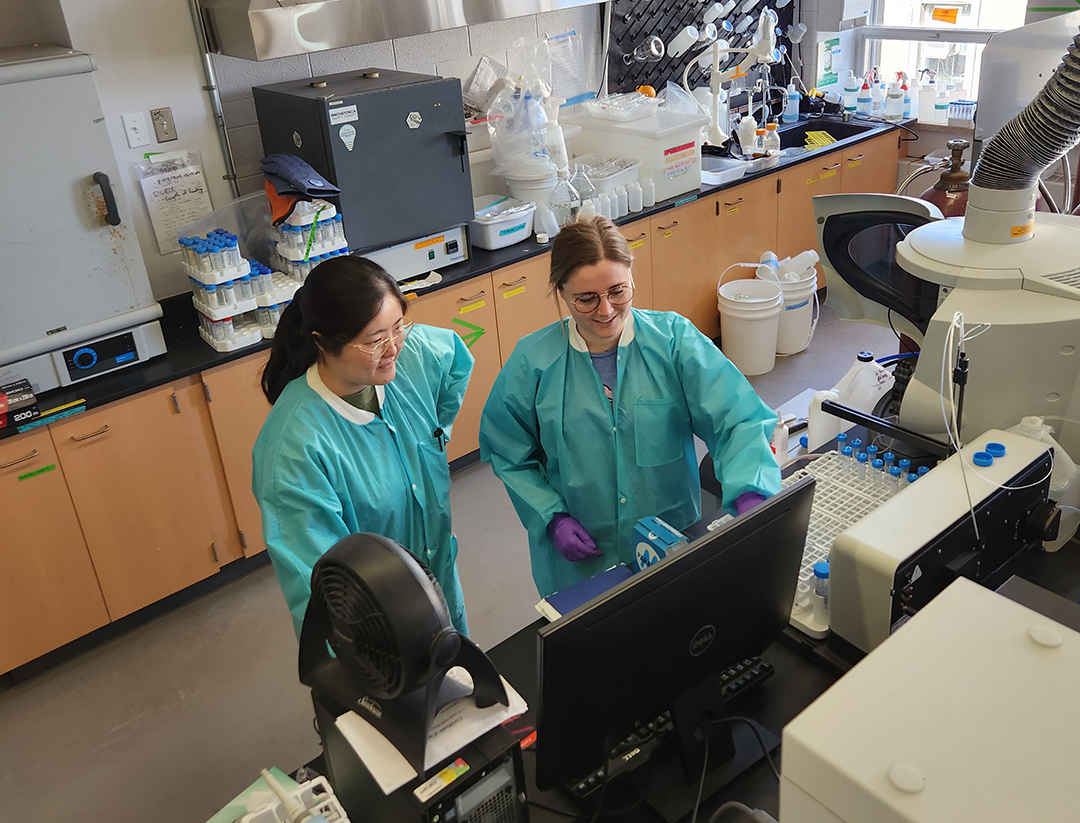
We focus on sulphur because it plays an important role in these systems, with many sulphur-rich ores being processed, resulting in large quantities of sulphur ending up in these wastewater landscapes. These mine wastewater systems remain relatively understudied outside of acid mine drainage (AMD) conditions, which are characterized by highly acidic, high metal, and low oxygen conditions. To better understand these systems outside of AMD conditions, we use physicochemical, geochemical, microbiological, and metagenomics approaches. Identifying potentially novel sulphur-oxidizing bacteria and their functions is a significant aspect of our work. We spend a considerable amount of time growing bacteria and researching their metabolisms to determine any potential impact on-site. This allows us to provide our partners with more informed remediation opinions and monitoring options based on biological data.
From the research standpoint, is your main goal to keep monitoring the situation for your partners, or are there any other aims you are pursuing?
Objectives for the MWS project include lowering management costs, decreasing the risks of negative environmental impacts, and contributing to a better understanding of the bacteria present in these systems.
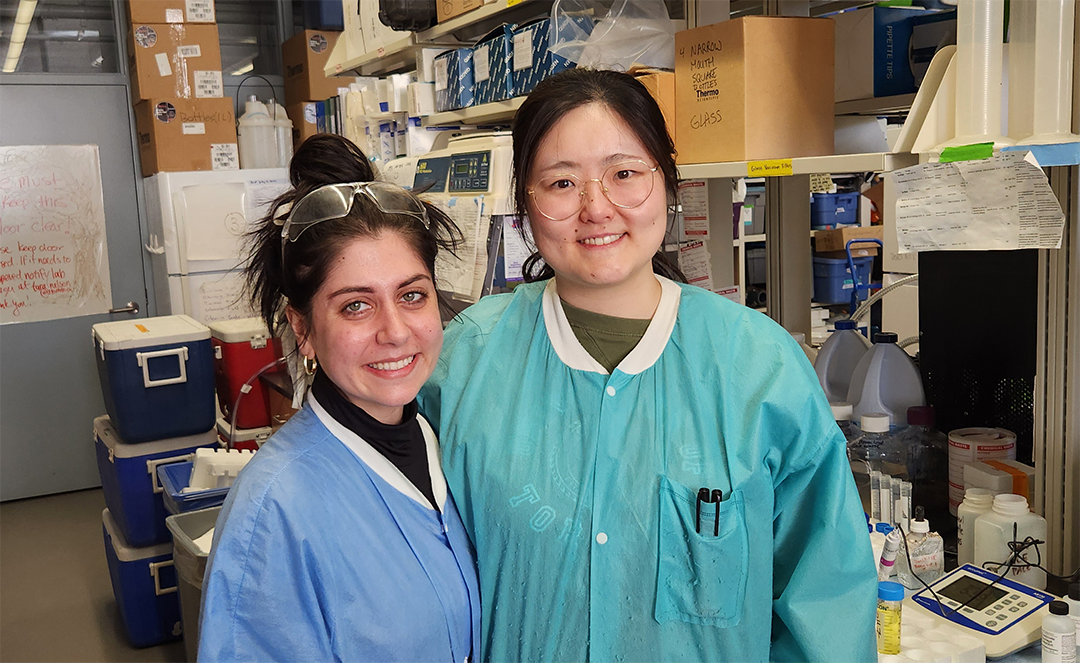
Professor Lesley Warren and her PhD student Yunyun Yan are studying the first oil sands land pit lake in Alberta, Canada. Their research is part of the massive oil sand tailings reclamation project, a collaboration between industry and academia aimed at making the surface mining industry more sustainable.
The lake is the only full-scale demonstration for the ongoing viability assessment of water-capped tailings technology, a potential strategy for long-term oil sand tailings reclamation. To put this into perspective, the lake works as a water cap on top of the oil sands tailings. This unique method can address various concerns over time, such as preventing carbon dioxide and methane emissions as well as accelerating the landscape healing process.
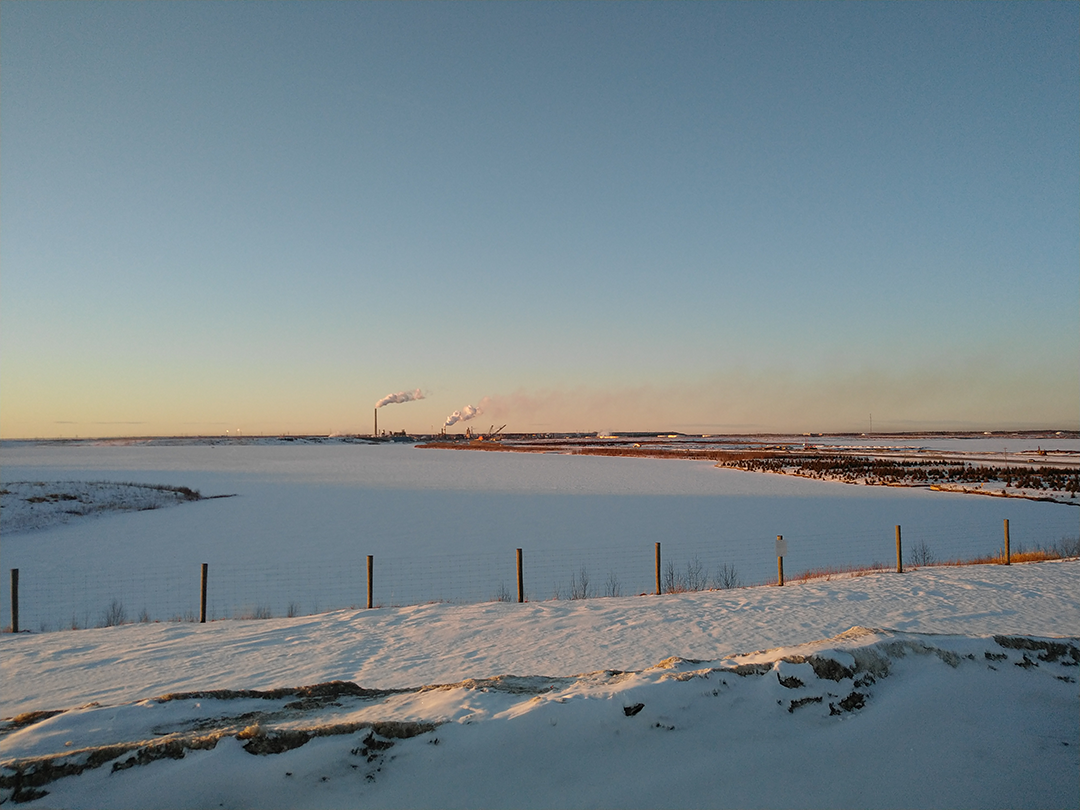
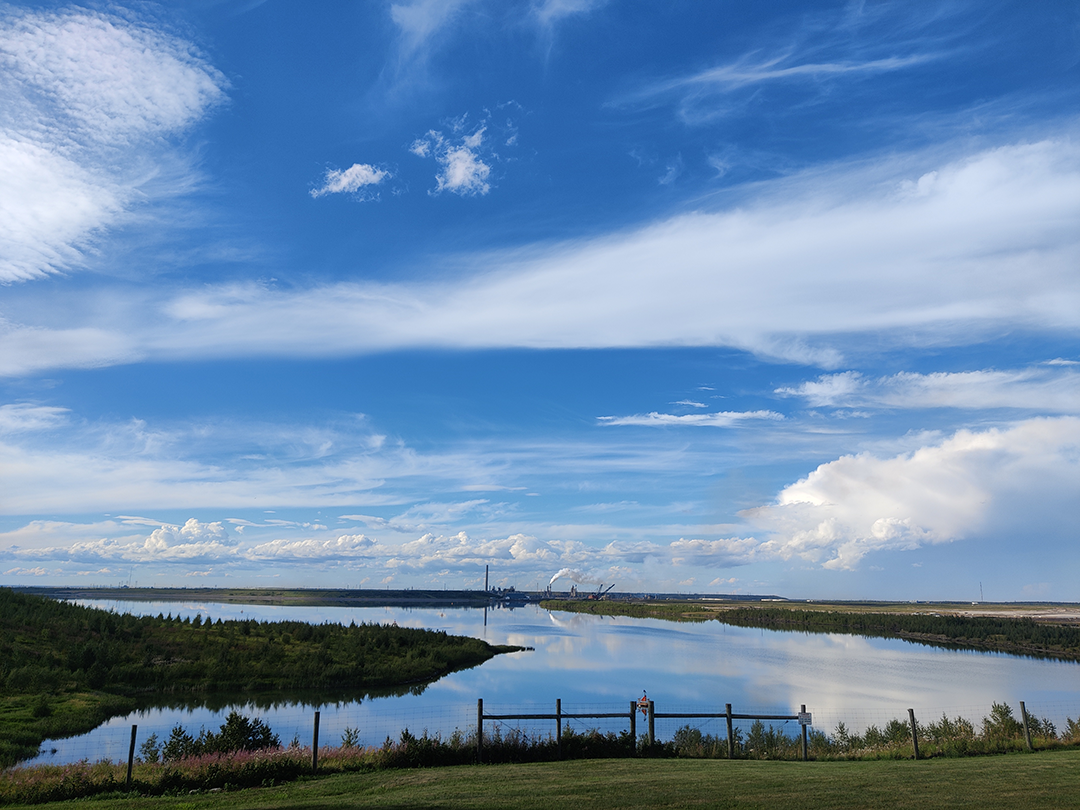
Comprehensive research of the pilot end pit lake ecosystem is crucial for policy decisions and adaptive management within the oil sand mine closure frameworks. Upon regulatory approval, approximately 23 more end pit lakes were proposed to be built in the area. While multi-discipline industrial and research institutions collectively assess end pit lake water quality and biodiversity development, the University of Toronto’s Mine, Water and Environment research team focuses on biogeochemical Sulphur (S) cycling processes. This aspect of the lake’s unique engineered system remains unconstrained, thus its emergent risks to pit lake water cap oxygen persistence need to be thoroughly analyzed.
“I joined Prof. Lesley Warren’s research team in 2019. My PhD research aims to characterize the biogeochemical S cycling processes in the end pit lake water cap, which pose emergent risks to lake water oxygen levels, a key metric for the success of pit lake ecological development. Combining field monitoring and lab experimental techniques, we can assess what is happening within the system, as well as attempt to predict what may occur in the next 20-30 years. Our research provides insights into the adaptive management strategies of our industry partners, promoting the successful reclamation of oil sand tailings crucial for the sustainable development of the oil sands industry,” says Yan.
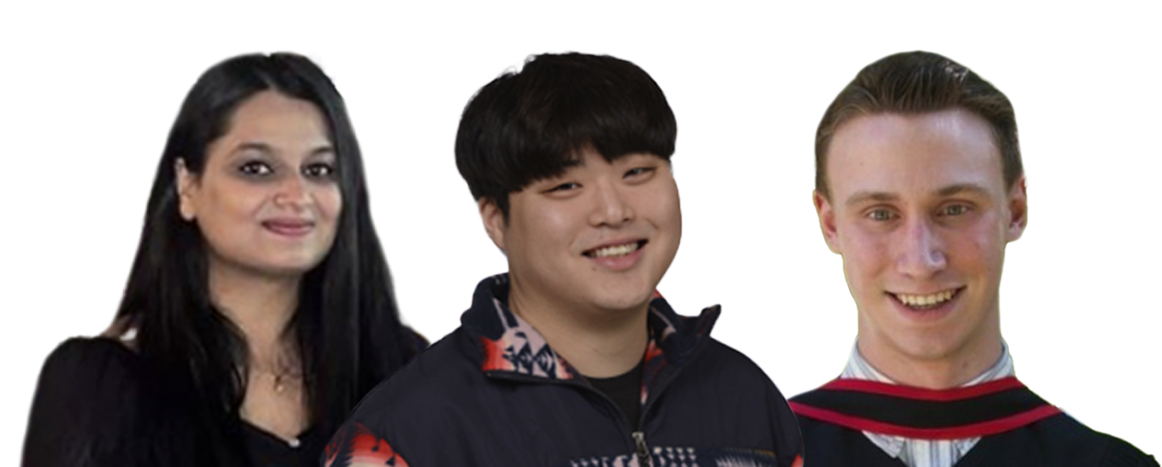
Three Ph.D. students Nehul Agarwal, Jinyoung Ko and Alex Mendel, working with CivMin faculty in the Hub for Advancing Buildings (HAB), were awarded competitive ASHRAE Grant in Aid Awards. Out of 67 global applications this year, only 20 awardees were chosen. It’s worth noting that 15% of the awardees (3 out of 20) are from the University of Toronto. Each student awardee will receive a $10,000 USD scholarship and the opportunity to present their work at an ASHRAE conference that will be held during the 2024-2025 academic year.
Awardees include:
- Nehul Agarwal (CivE PhD student under the supervision of Prof. Sarah Haines) Their project title is: ” Open Plenums & Indoor Environments (OPEN): Characterization of System Performance & IAQ Impacts”. This work falls under the scope of the Society’s Technical Committee TC 4.03, Ventilation Requirements & Infiltration.
- Jinyoung Ko (CivE PhD student under the supervision of Prof. Seungjae Lee) Thier project title is: “Development of Informative Feedback-based Occupant-Centric Solution toward Carbon Neutral Buildings and Society”. This work falls under the scope of the Society’s Technical Committee TC 7.10, Occupant Behavior in Building Design and Operation.
- Alex Mendell (DLPSH PhD candidate under the supervision of Prof. Jeffrey Siegel and Prof. Seungjae Lee). Their project title is: “Improved strategies for reducing exposure to particulate matter in residential environments”. This work falls under the scope of the Society’s Technical Committee TC 2.04, Particulate Air Contaminants and Particulate Contaminant Removal Equipment.
Professor Grasselli has been awarded the Entrepreneurship Medal for applying new technologies or innovative approaches that have enabled new companies to get started

Professor Giovanni Grasselli is among six U of T Engineering community members who have been honoured by the Ontario Society of Professional Engineers (OSPE) and Professional Engineers Ontario with Ontario Professional Engineers Awards.
“These outstanding engineers demonstrate the range of contributions that our faculty and alumni are making across multiple fields, from founding new companies and managing significant Canadian organizations, to serving in leadership roles in the profession and in the community,” says U of T Engineering Dean Christopher Yip.
“On behalf of the faculty, my heartfelt congratulations on these well-deserved recognitions.”
Grasselli holds the NSERC/Energi Simulation Industrial Research Chair in Fundamental Rock Physics and Rock Mechanics. Throughout his career, he has made exceptional contributions to the field of rock mechanics through his innovative work on the Finite-Discrete Element Method (FDEM) and the commercialization of this method through the start-up Geomechanica Inc. Grasselli’s leading research has significantly advanced our understanding of and capabilities in simulating complex rock mechanics problems. This work, combined with his entrepreneurship skills, culminated in the development of Irazu, a state-of-the-art FDEM commercial software for the analysis of deformations, fracturing and stability in rock masses.
Irazu has changed the way engineers and researchers predict rock behaviour under various stress conditions, offering unparalleled accuracy. It has significantly impacted the rock mechanics field, enhancing safety and efficiency in engineering projects worldwide, and continues to be the sole FDEM GPU commercial software available on the international market.
Under Grasselli’s leadership, Geomechanica Inc. has become a beacon of innovation. It is now a leading firm both in the development of numerical models — which have been used in the design of deep underground nuclear waste disposal facilities — and in laboratory testing, with services contracted by mining operations around the world.
A full list of Ontario Professional Engineers Award is posted by Engineering News
May 09, 2024 | CBC
May 8, 2024 | City News – Toronto
May 7, 2024 | EIN
May 6, 2024 | Nature
May 3, 2024 | Earth.com
Student profile: Good digs leads to netting beach volleyball’s international stage for this Lassonde Mineral Engineering student.
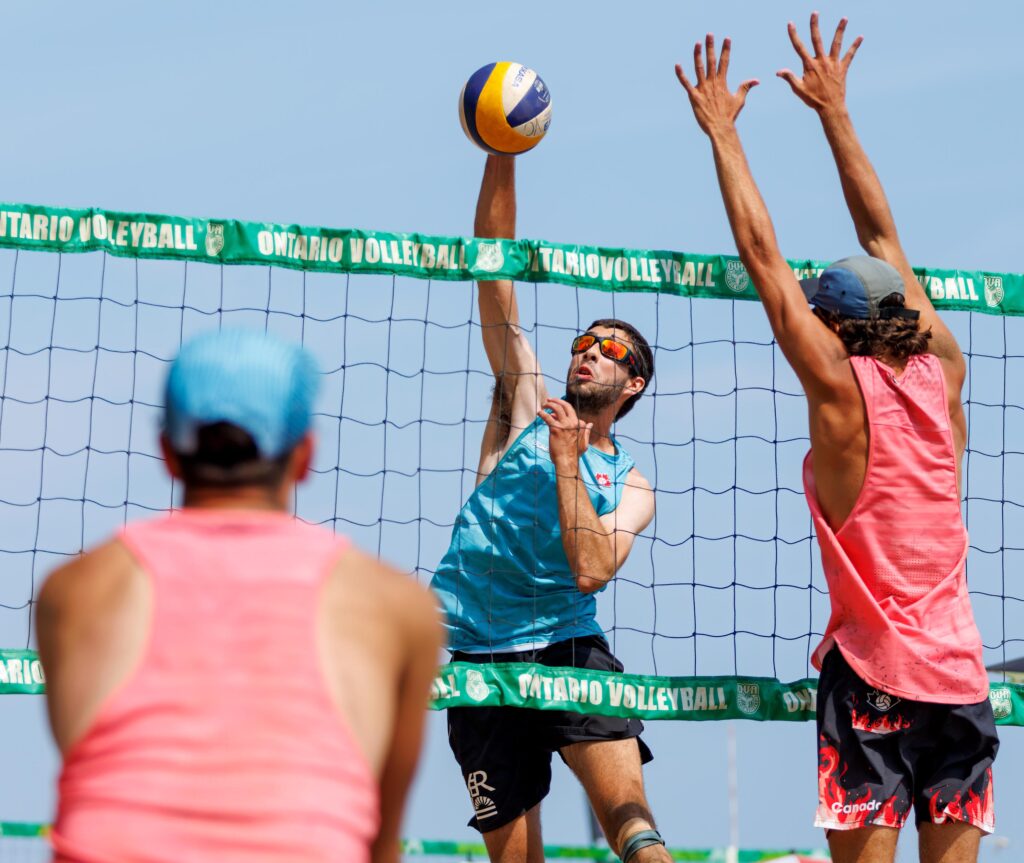
Charlie Ellinas (Year 3 MinE) finds success playing beach volleyball while simultaneously taking on the Lassonde Mineral Engineering program at U of T Engineering. CivMin chats with Charlie to see how he’s balancing the pursuit of competitive sports, a demanding academic program and life on campus. Setting himself up for breakpoint, Charlie rallies to ace this year.
Please tell us a little bit about yourself.
My name is Charlie Ellinas and I’m from Etobicoke – I’ve lived there my whole life. Ever since I was a child, I have always loved playing sports. Throughout primary school, and beyond, I played many sports like baseball, soccer, hockey… basically everything I could. Then, when I got to middle school, I was introduced to volleyball.
My mom played volleyball at the University of Waterloo. I wound up playing for the same club she played for and even had the same coach as her. Then, after some time, I started playing beach volleyball. I played high level baseball but eventually stopped playing because I fell in love with beach volleyball and have played it every summer since.
How did you make the transition from indoor volleyball to beach volleyball?
It wasn’t too hard for me because I have always been athletic. I like it more than indoor volleyball because you are forced to rely more on your own athleticism. Since it is just you and your partner, you can have a greater impact on winning or losing. And I really enjoy that about it!
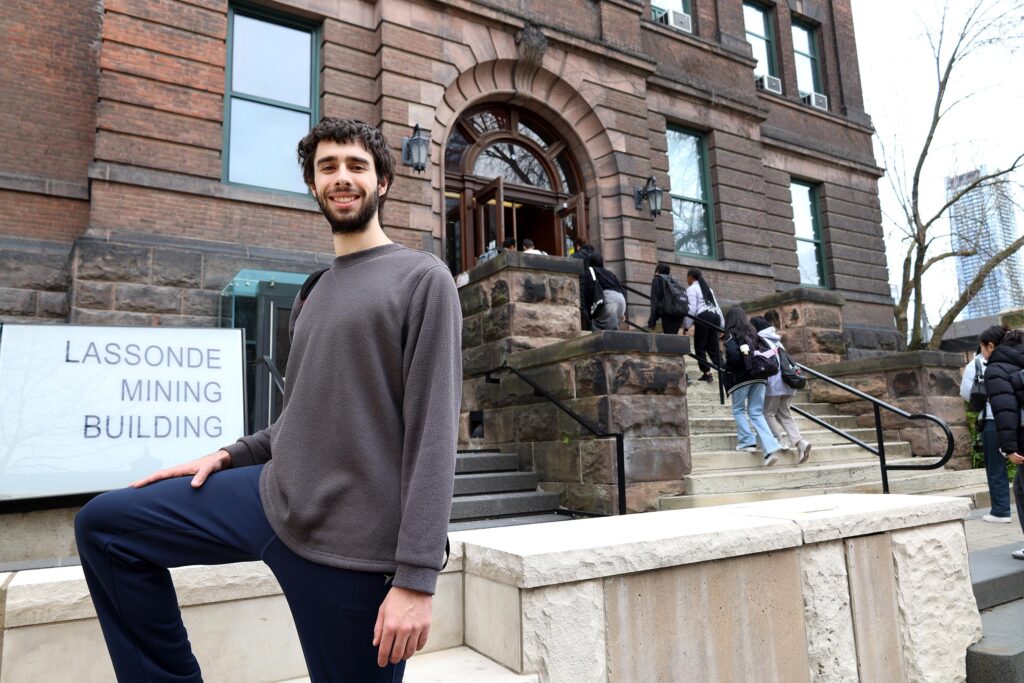
“With all the electric cars, mining is going to be even more important. Everything is either caught, grown or mined, so mining will definitely open doors for the future.”
What drew you to U of T?
The main reason I came to U of T was because I wanted to stay at home – I still live at home. Also, U of T is one of the best schools in the world with Engineering ranked 20th and 10th for mining engineering. I originally had no idea that I wanted to go into Min. I wasn’t sure what I wanted to do but applied to Engineering because I knew it would set me up for the future.
My parents really pushed me to go into Mining because they said, “With all the electric cars, mining is going to be even more important. Everything is either caught, grown or mined, so mining will definitely open doors for the future.”
Another thing that drew me to Min is the potential scholarships. My first year I got the Lassonde Scholarship, which was a scholarship for entering the Min program. The next year I was awarded the Reginald J. Redrupp award. This year, I was awarded the Shell Canada scholarship. Something about Min that has been great is there is more of an opportunity to be awarded scholarships as it is the discipline with the fewest number of students.
You’re in your third year now. Did you go to U of T Camp [CME358 – Civil & Mineral Practicals] last summer? How did you find the experience?
I was happy heading up to Camp. I arrived late, because earlier that day my beach partner and I won the under 20 Beach Volleyball Canadian National Championships. I couldn’t sleep that first night because I was so excited about our victory. I was a bit skeptical of camp – I thought, whoa, this is going to be a lot of work and I wasn’t enjoying it at the start. But then, once we really got going, I started to embrace it more. I got a lot closer with many of the mineral engineering students and even many of the civil engineers. Overall, I found survey camp to be a great bonding experience.
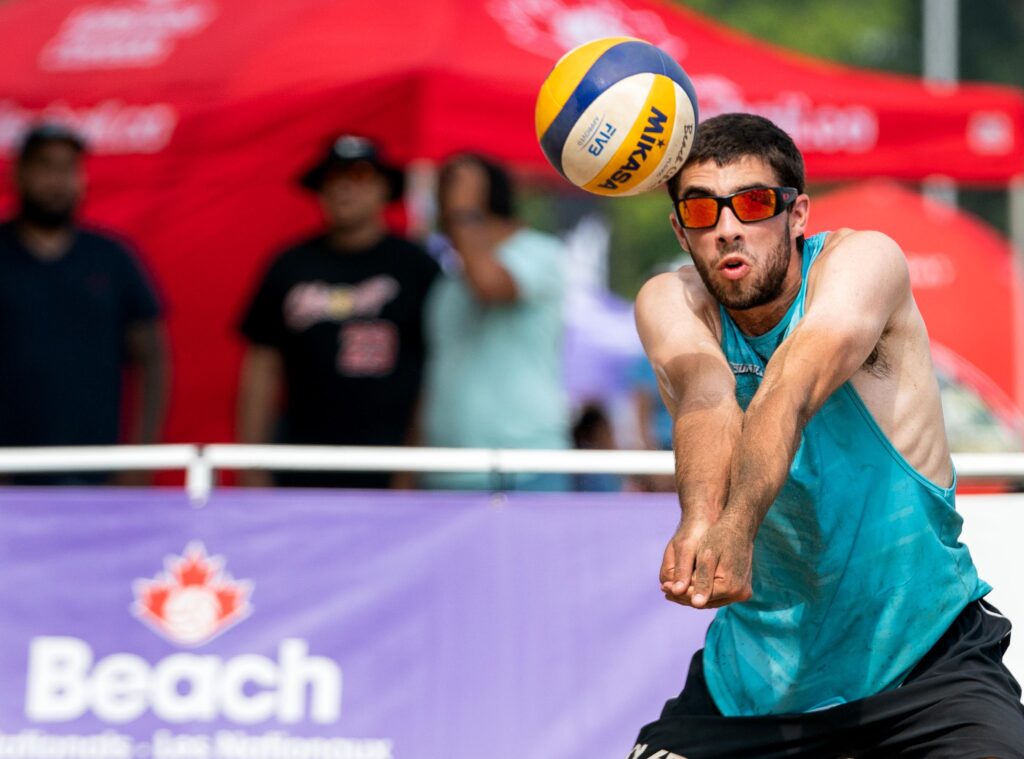
There are three units – how did you fare? A lot of group work and you’re getting experience with fieldwork as well. How did that go?
The first unit we had was the topographic mapping. I think it may have been the hardest station. Because I arrived late, I ended up getting placed in a group of four instead of three, which helped split the workload. We also had a member who surveyed over the summer. This was helpful, as he taught us how to set up the total station and the tripods – this gave us a big advantage over the other groups.
Are you involved in anything else at school? Any clubs or groups?
Yes, I went to the [Canadian] Mining Games this year with other members of Min Club. It was my first time and a great experience. My events included the jackleg [drilling] competition, surveying – of which I already had a bit of knowledge because of Survey Camp – and the mine rescue. The jackleg was very physically demanding, and the mine rescue event involved climbing a rope, breaking down a door while using a crowbar, and using CPR knowledge.
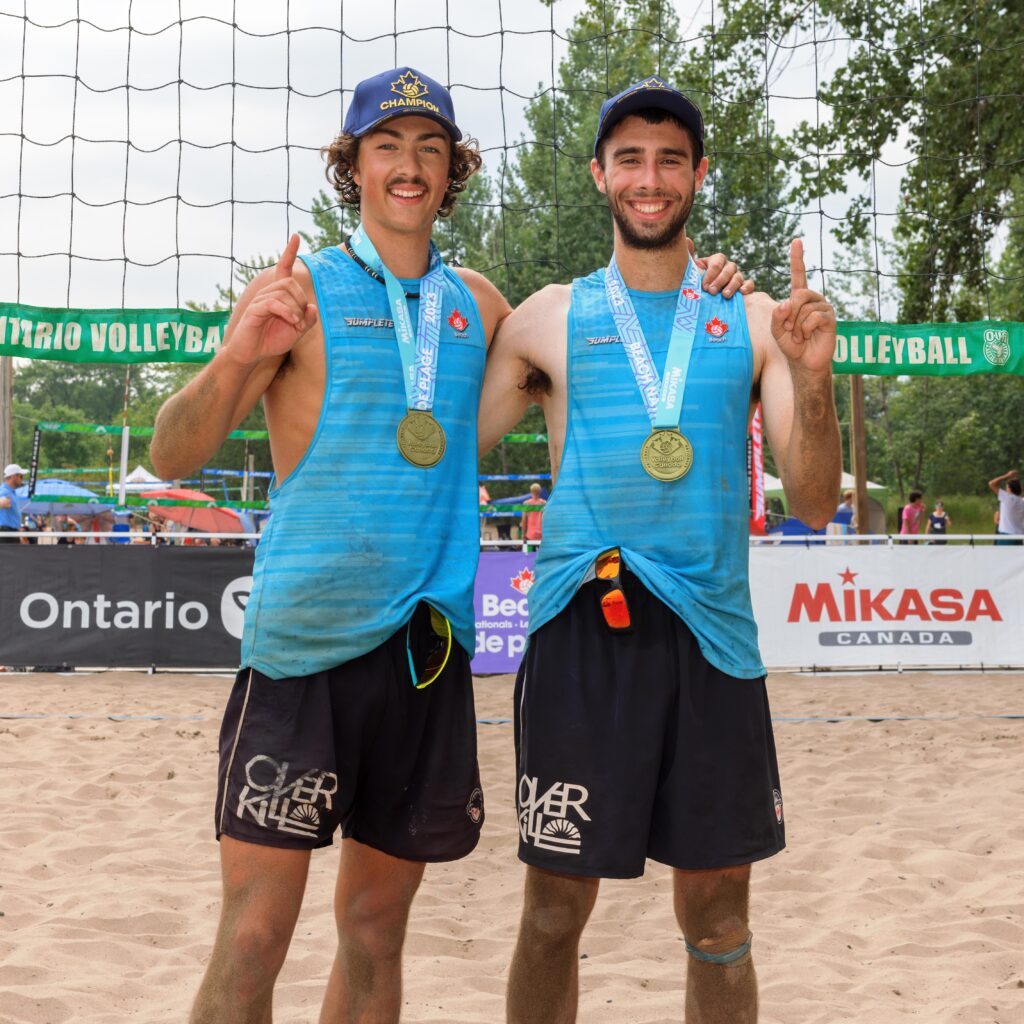
How do you balance your heavy academic engineering workload and keep up with your athletic pursuits? The beach volleyball competitions are usually outside of school and its schedule. Do the events take you to different places and work with your otherwise demanding schedule?
Volleyball competitions mainly occur during the summer. Because of Ontario’s climate there is really only the Beach Volleyball National Training Centre in Downsview, and I can’t access the centre very often during the academic year due to the timing of classes, so I primarily play throughout the summer months. However, earlier this year, my beach partner and I won the Under 20 National Championships. As a result, we got to represent Canada in Thailand at the Under 21 World Championships in November [2023].
Due to this, we had a rigorous training schedule from September through to the tournament date in November. The tournament was held in Roi Et which is a small town in Thailand. It was a great experience because I got to play against the best players in the world. The residents of Roi Et also loved the tournament as they don’t often see many big sporting events like this. I also had never signed so many autographs or taken so many pictures with people before. It was amazing to be a part of it.
Is there a place on campus that is your go-to study spot, or a place to meet up with friends?
On days I’m at school, where there are large breaks in between classes, I’ll normally spend time in the [Min Club] common room. I’ll be there talking to some of my friends in my program – upper years and some lower years as well. When I am doing schoolwork, I normally go to the fourth floor of the Lassonde Mining Building. The Mining Building is great because there are not many people, it’s quiet, and you can easily study there.
Do you have any favourite courses, professors, or somebody who made an impact on you?
My favourite year so far has been third year, as almost all of our courses were strictly about mining. I really enjoyed the underground mining course with Professor John Hadjigeorgiou. I just had the exam for it today and I felt like I learned a lot from the course. The professor taught me more about the industry, the expectations, and potential job positions. I also enjoyed the first-year [MIN191] Introduction to Mineral Engineering course. I knew very little about mining before starting my program so this course opened my eyes to the industry.
You’re finishing third year now. Are you considering a PEY Co-op placement? [professional experience year]
I am planning on taking a PEY placement. However, I do not have a position yet because I’m looking to start working in September as I don’t want to miss out on the beach season since it’s such a short season. Most of the positions will be released sometime around the beginning of May so I am going to start applying for positions when my exams end. I’m also hoping to get a fly-in fly-out position.
Do you have a unique talent or some other special hobby or skill or something that’s unusual? Something we wouldn’t otherwise know about?
I played musical instruments throughout middle and high school. I played the piano from a young age and I was in the string orchestra and played the violin from grade six to 12. I attended a music school, John G. Althouse, from grade six to eight since it was my home school. For high school I attended Richview Collegiate Institute which also had a music program. I played on many sports teams throughout middle and high school, and I was even recognized as the Athlete of the Year in my senior year of high school.
“If I were you, I would look for a fly-in fly-out position and travel all over the world on my time off.”
What might you be looking forward to in a career in mineral engineering?
One thing I am looking forward to is travelling. With mining, you can travel all over the world, especially with fly-in, fly-out positions. I’m interested in doing this at the start of my career. Fly-in fly-out rotations involve working 12-hour days when you’re on. I remember Professor John Harrison saying to us, “If I were you, I would look for a fly-in fly-out position and travel all over the world on my time off.”
By Phill Snel
*ED NOTE: Several volleyball puns were used in this article. How many can you spot?
April 30, 2024 | The Jerusalem Post